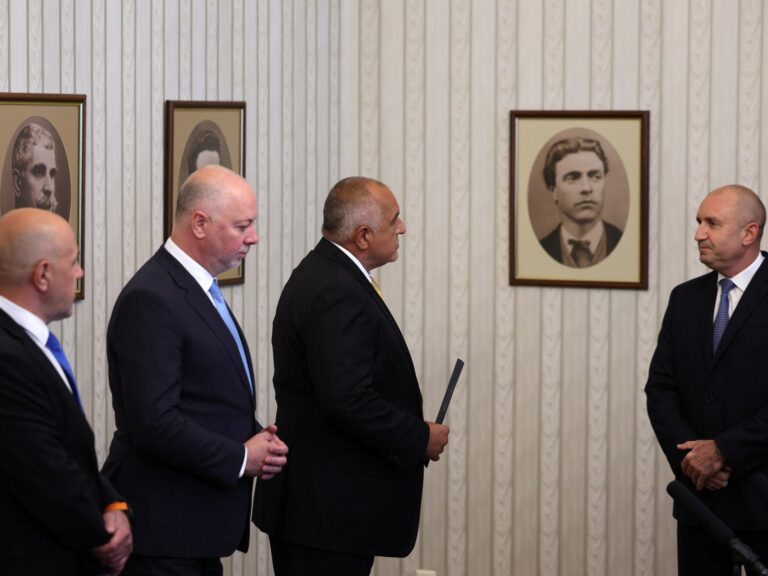The June 8 vote saw centre-right parties win the most seats but fall short of a majority, marking the sixth early vote in the past three years.
Bulgaria’s president has tasked a centre-right coalition to form a government, about a month after elections again divided parliament.
President Rumen Radev has ordered the GERB-UDF coalition to form a government after a June 8 vote gave it the largest majority in parliament, but the move is unlikely to bring an end to Bulgaria’s long period of political instability.
Former parliament speaker and prime minister-designate Rosen Zhelyazkov has accepted the president’s mandate and presented a list of ministerial candidates for a minority government, asking the president to send it to parliament for approval.
The 56-year-old lawyer described his cabinet as a “team of GERB experts and skilled politicians”, but a parliamentary vote scheduled for later this week is expected to be difficult.
The GERB-led coalition government holds only 68 of the 240 seats in the National Assembly and has yet to garner the support from other parties needed to win a majority in the vote.
So far only the Turkish Rights and Freedoms Movement, with 47 members, has pledged its support, meaning the GERB-UDF coalition will need another ally.
But that seems unlikely, suggesting that Bulgaria has a long way to go before it can establish a stable government.
unstable
The June 8 general election was the European Union’s poorest country’s sixth early election in three years.
Several governments have come and gone since anti-corruption protests that began in 2020 tore apart the GERB coalition led by then-Prime Minister Boyko Borissov, who remains the party’s leader.
The June general election was triggered by the collapse in March of a coalition government between GERB and a relatively new reformist party, We Will Continue the Change (PP).
Both are strong supporters of the EU but are riven by personal differences and mistrust and say they cannot form a new government without new elections.
The PP came in second to the Movement for Rights and Freedoms in June’s elections, with 39 seats. The ultranationalist Renaissance Party won 38 seats.
Mr Borissov, who led three governments from 2009 to 2021, said immediately after the election that he would not seek the prime ministerial post, in an apparent attempt to smooth the way for the partnership.
But the PP announced on Thursday that it would not support a government that included GERB.
If the coalition fails to win parliamentary support, the president will hand power to the runner-up in the election.
Bulgaria, which has long sought eurozone membership and full participation in Europe’s open-border Schengen area, is hoping for a stable government that would boost the flow of EU funds.
Plans to join the eurozone have already been postponed twice due to failure to meet inflation targets.

